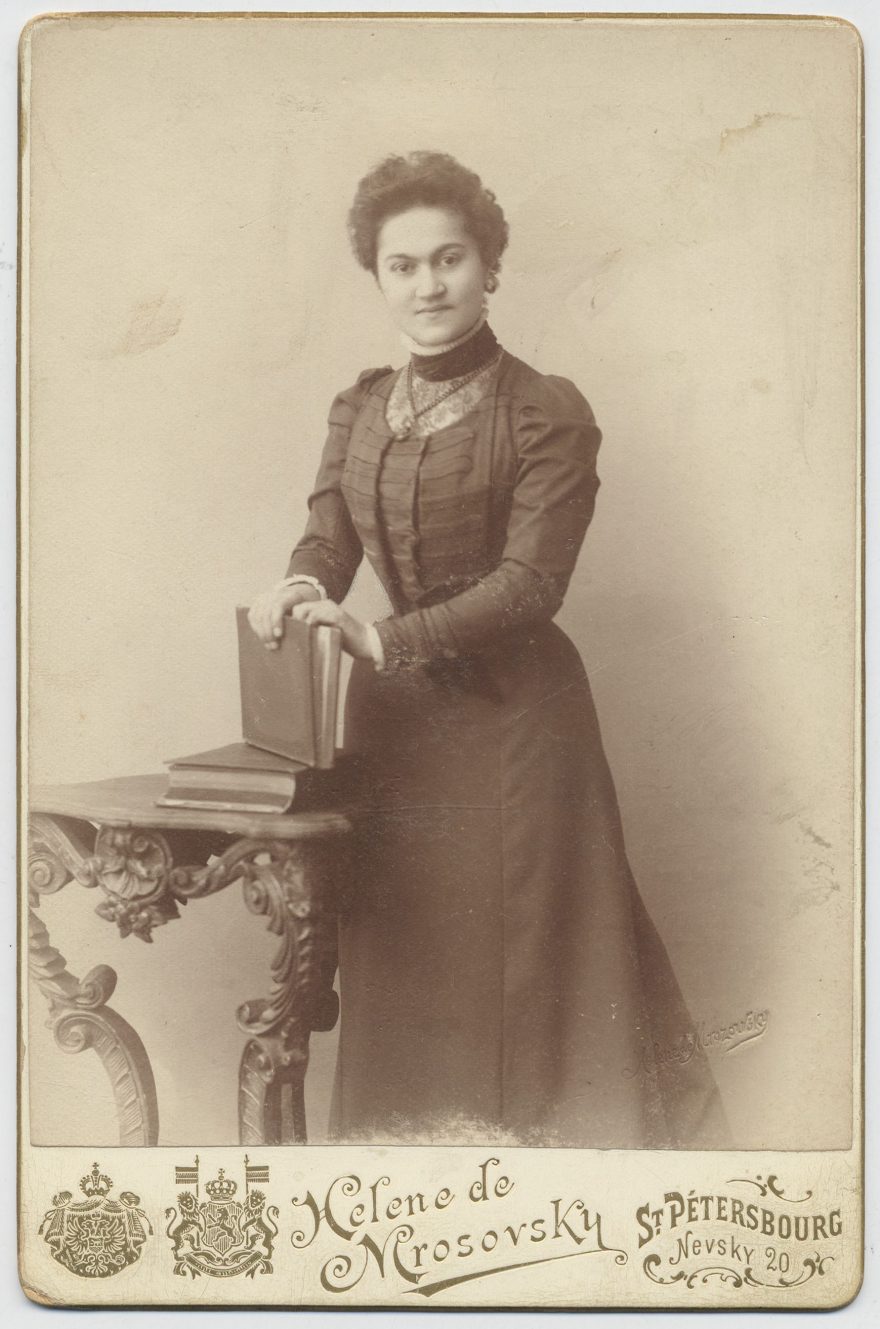Leokadiya Kashperova Image: courtesy of the Russian National Museum of Music with thanks to Mikhail Bryzgalov and Olga Kuzina
—
Welcome! This issue focuses on women at the turn of the last century in three different guises. Alongside one of the most famous women in opera, Tosca, we place a spotlight on two female composers in their prime during that era – one of which has only recently been rediscovered.
Odaline de la Martínez was the first woman to conduct at the BBC Proms in 1984, and has been a pioneering interpreter of Dame Ethel Smyth’s music. She first encountered her work via the musicologist Sophie Fuller, leading to Odaline conducting a special BBC Proms performance of Smyth’s opera The Wreckers (1906) at the Proms in 1994. Dame Ethel was not only a composer, but also a prolific a member of the women’s suffrage movement; she spent two months in Holloway Prison after throwing stones at a leading politician’s house. Smyth’s guts and determination made her a force to be reckoned with – in both positive and negative ways – and it’s thanks to advocates such as Odaline that her music is now more widely available to hear and hire.
Tosca (1900) is the opera that put Puccini on the map. In 2021, Tiffany Chang conducted two very different productions of the work within the span of two and a half months. The first was at Portland Opera, Oregon – a fairly traditional set-up, with a full 65-piece orchestra in the pit, a huge chorus of at least 30, and an auditorium seating approximately 3,000. The second was at Opera Columbus, Ohio – a far more unorthodox affair with a reduced 27-piece orchestra playing upstage, elevated behind the singers on the second storey of the set. There was no pit, and the venue seated around 900. Tiffany describes how the contrasting situations required very different leadership styles, and she brilliantly guides us through some of the fascinating features of Puccini’s ingenious writing.
Leokadiya Kashperova was, until very recently, a name almost completely lost to history. Dr. Graham Griffiths, Honorary Visiting Research Fellow at City, University of London, came across her name in a mere footnote – she was Stravinsky’s piano teacher. Whilst visiting the St. Petersburg Conservatoire library he discovered her symphony, untouched for over 100 years. The manuscript of the full score of her Piano Concerto was found (also by Griffiths) in the Russian National Museum of Music, Moscow. Chris Hopkins, conductor and pianist, recorded her Piano Concerto in A Minor (1900) last year with pianist Alexandra Dariescu and the BBC Symphony Orchestra. He is a regular at English National Opera, and is Principal Conductor of the English Sinfonia. Chris was a real delight, and it was wonderful to also be played sections of this sensational piece at the piano during our discussion.
As ever, huge thanks to Odaline, Tiffany and Chris for their time and generosity. I hope you enjoy, and please share widely while this issue is free access.
Dr. Hannah Baxter (Editor)
